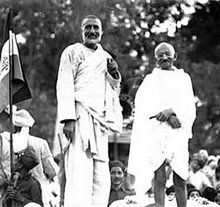Like Eduardo Galeano. Here is an excerpt from his recent interview on Democracy Now!, one of only a handful of news outlets worth paying attention to...
AMY GOODMAN: I wanted to ask you about President Obama, a little more about him. We recently had on the Pan-Africanist scholar Ali Mazrui, who’s a Kenyan scholar, a chancellor at a Kenyan school and also at Binghamton University in New York. He said Barack Obama has become “the most powerful single black individual in the history of civilization.” What about the significance of Barack Obama becoming president?
EDUARDO GALEANO: Well, it’s a very important—a very important victory in a long, long and difficult and painful fight against racism, especially in this country, in the United States.
Here in the book, I tell some stories, unknown or almost unknown, happened fifteen minutes ago in historical terms. For instance, in 1942, 1942, the Pentagon, when the United States was entered in the Second World War, the Pentagon forbade, prohibited the transfusions of black blood. And at that time, the director of the plasma bank in the Red Cross was a scientific called Charles Drew, and he denied the order. He denied to obey it, saying it’s stupid. Such a thing, such a thing, black blood, does not exist. Blood is red; it’s not black. Blood is red. And he knew what it was he was speaking about. He was almost the inventor of the plasma, or at least the scientific who made it possible. He saved million of lives in the Second World War. But besides being a scientific of very high reputation, he was black. And he was black. And so, he was not—he knew perfectly well what he was speaking about, and that’s why he resigned or was resigned. And this happened just a while ago, it’s yesterday.
So it’s very important, the fact that Obama is now president of the United States, being, as he is, black or half-black, no? The problem is that nobody is better or worse for being black or white, like—this book also, Mirrors, contains a lot of stories about women, this half of humanity. I don’t know why called a minority. I’m not strong in mathematics, but how half of humanity may be a minority? And I tell a lot of stories that are badly known or unknown. Then, my friends—I have some terribly perverse friends, saying, “Well, now the system gave you as a gift that wonderful woman called Condoleezza Rice.” And I say, “Well, yes, it’s true, because a woman is not better than a man or a man better than a woman. We are all made, you know, half-garbage and half-marble, half-beauty and half-[expletive].” But we should have the same opportunities. And that’s a problem. The discrimination have condemned so many people to be invisible. And this book tries to recover their memories and to recover their presence.
The fact that Obama is black is very important in the fight against racism, but it’s also a challenge. I mean, he should prove that blacks can do it better than whites, like women in power, which is unfortunately not the case of Margaret Thatcher, for instance. But they are at least—at least Margaret Thatcher had the opportunity to show it. And sometimes I think Obama is doing it well, and sometimes not. But it must be very difficult for him.
Yesterday I said perhaps he’s lost in the bush, and meaning that there is all this war machine, for instance. He improved the war budget. He improved it. In the campaign, he was promising a quite different attitude. But he ended raising the war budget, which is mysteriously named in the United States “defense budget.” I don’t know defense against who, because the last time this country was invaded was in 1812. Well, later there was a short invasion by Pancho Villa, but this was almost nothing, I mean. And I believe we should—we should propose a new model of world, not consecrated to this human passion of killing each other. We are the only animal specialized in mutual extermination.
By the way, advertising, I’m a member of a vast movement working for a big giant march for peace and against violence on October 2 in all countries, in all countries. And I hope we may have millions and millions of feet walking in the whole planet, in all cities, in all parts of the world, against the war, against this crazy mad world living against itself, this big factory of death that the world is nowadays. Each minute, each minute, the last official figures say, each minute, the world gives, each minute, $3 million to military expenses, $3 million per minute for military expenses, for the industry of death. And each minute, fifteen children die from hunger or curable diseases. So we’ll march against it, because we believe another world is possible.
AMY GOODMAN: We’re talking to Eduardo Galeano, and we’re going to be back with him in a minute.
FULL INTERVIEW HERE!
Subscribe to:
Post Comments (Atom)



No comments:
Post a Comment